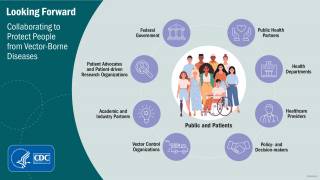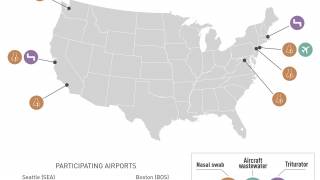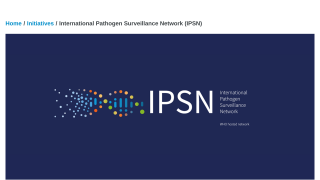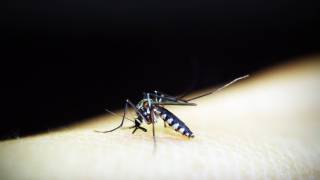Texas Expands Zika Hunt

The Texas Department of State Health Services (DSHS) have identified four additional cases of suspected locally transmitted Zika virus disease in Cameron County.
The additional patients live in very close proximity to the first case.
Prompted by the additional cases, the DSHS Commission is expanding the Medicaid benefit for mosquito repellent beyond Dec. 31 for residents of Cameron County.
The benefit was recently brought back with news of the first Zika case likely transmitted locally and is in place statewide through Dec. 31.
For Cameron County, the benefit will be in place indefinitely as state health officials collect more information about the scope of transmission in Texas.
Though the investigation is ongoing, the infections were likely acquired in that immediate area. They reported getting sick with Zika-like symptoms between Nov. 29 and Dec. 1 and were likely infected several days earlier before mosquito control efforts intensified in that part of Brownsville.
None are pregnant women. Testing of people living in an eight-block area around the homes of the identified cases continues but has yet to show any additional evidence of Zika transmission in the rest of that larger area.
“These cases were found through careful public health work and collaboration at the local, state and federal levels,” said Dr. John Hellerstedt, DSHS commissioner.
“And we’ll continue to follow through with the investigation and additional surveillance to identify other cases and other places experiencing local mosquito transmission of Zika. That information will be crucial to any future public health guidance.”
It’s also important that healthcare providers continue to be on the lookout for Zika and pursue testing pregnant women who have traveled to Mexico or other areas where Zika is spreading and testing anyone with symptoms compatible with Zika.
Additionally, the City of Brownsville has been spraying for mosquitoes in the vicinity over the last two weeks and has seen a decrease in the number of mosquitoes in the area.
“The combination of mosquito control and colder weather has decreased mosquito activity in Cameron County and greatly decreased the probability of more widespread mosquito transmission of Zika right now,” said Dr. Hellerstedt.
“However, winters are mild in southern Texas, and mosquito populations can rebound even during short periods of warmer weather. Whenever you see mosquito activity, protect yourself and your family from bites.”
People can do that by:
- Using EPA-approved insect repellent
- Using air conditioning or window and door screens that are in good repair to keep mosquitoes out of homes
- Wearing long pants and long-sleeved shirts that cover exposed skin
- Removing standing water in and around homes year-round, including water in trash cans, toys, tires, flower pots and any other container that can hold water
Zika virus is transmitted to people primarily through the bite of an infected mosquito, though it can also spread by sexual contact.
The four most common symptoms are fever, itchy rash, joint pain and eye redness. While symptoms are usually minor, Zika can also cause severe birth defects, including microcephaly and other poor birth outcomes in some women infected during pregnancy.
DSHS recommends pregnant women avoid traveling to locations with sustained, local Zika transmission, including Mexico.
Our Trust Standards: Medical Advisory Committee














.jpg)













